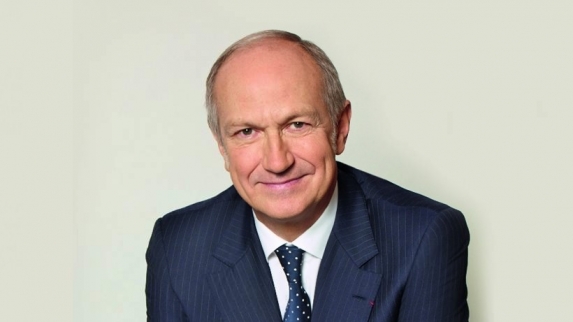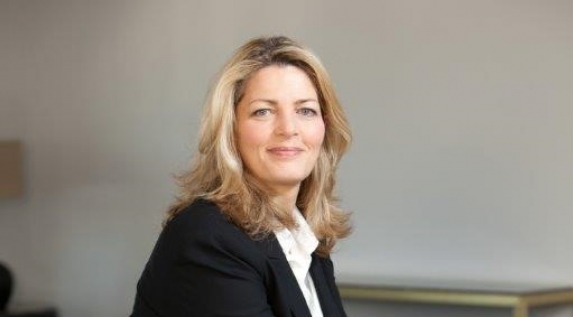Business in a multipolar world, by Jean-Paul Agon
Jean-Paul Agon is the CEO of the L'Oréal Group. He shares his analysis on the challenges of a multipolar world.

The bipolarity of the Cold War World has given way to a more open and globalized world, in many ways thanks to the generalization of the market economy. At the same time, the world is becoming increasingly fragmented and globalization is occuring at an uneven pace. As a business leader, what is your view of this two-tiered world?
Sadly, you are right, the world is more fragmented than ever. In the last decade, economic inequalities have risen in both developed countries and developing economies. Skyrocketing nationalism and protectionism have fractured our universe as we knew it, which is obviously a concern for business. And the middle class is squeezed in developed countries, which has of course strong impacts on consumption.
But, we must never forget that globalization has been a major turning point in the history of humanity. From a Western viewpoint, we often see the cracks in globalization, but it is a very different situation when viewed from a developing nation. Look at Xi Jingping’s impassioned defense of globalization at the World Economic Forum this year. He has become one of its prime ambassadors, both acknowledging its challenges but convinced of its merits for China and the world.
Globalization has lifted hundreds of millions of people throughout the world out of poverty – and it’s not finished yet. The number of people belonging to the middle class worldwide could nearly double between 2015 and 2030 to reach 5.4 billion. Surveys predict that the upper class will see the biggest growth of all socioeconomic classes (+4.6% per year) in the next 15 years. These trends are a historic opportunity for many companies and for us in particular. Cosmetics products are often amongst the first affordable consumer products enabling a significant improvement in the quality of life. At L’Oréal, we talk about winning over one billion new customers.
I am absolutely convinced that deglobalization is unrealistic and dangerous for every nation. Nevertheless, states and businesses must work together to make sure that globalization is as inclusive as possible in order to share its gains with everyone.
How can a company integrate the challenges of multipolarity into its overarching strategic vision?
Even as recently as 10 years ago, some people thought that globalization would lead to uniformization, standardization or westernization – but they couldn’t have been more wrong. The world has not become flat. In fact, it’s quite the opposite. We live in a world of increasing segmentation. A world where differences are always greater.
It’s particularly true for our business. The new beauty universe is one of differences rather than similarities. People want products that are suitable for their skin and hair type, products that fulfil their desires, and match their culture and beauty routines.
This requires two imperatives: first, be ever more consumer-centric and always focus on consumer needs. They want products and formulas that are 100% relevant and tailor-made to them. Thanks to digital in particular, we are closer to our consumers than ever before.
Second, the company itself has become multipolar, each large region of the world now having its own expertise hub, with activities in both Research and Marketing. We have thus created hubs in major strategic markets such as the United States, Japan, Brazil, China, India, South Africa. And each of our subsidiaries has the freedom to adapt as best as possible to the local market.
This organization combines a strong central nervous system with a strategic vision and local hubs. It is a networking way of collaborating and formulating new products; this is the epitome of a multicultural system.
Numerous actors from the economic, political, social, and artistic spheres act in concert to profoundly influence the international public scene. What is the place of the company in this increasingly complex configuration? What role does it have to play?
Nation-states alone are not able to resolve the overwhelming collective problems facing the world today. Given the urgency of the situation, the role of companies is crucial. I strongly believe in their ability, at their level, to drive environmental and social progress. The business world is being offered a historic opportunity to contribute.
Take climate change, for example. Companies can be crucial agents of change because they can have a truly positive impact. Large multinational companies in particular have tremendous leverage, not only in their own actions but also through the chain reaction they can initiate among all their stakeholders, from suppliers to consumers alike. Moreover, because we are in a space that is non-competitive, solutions can be shared between companies, mobilizing collective intelligence to benefit everyone.
Or take the example of our
“Share and Care” program, aimed at guaranteeing the best social practices to all our employees around the world. We all know there are big discrepancies between levels of social protection from country to country. Share & Care constitutes a major social advance in many countries. The lives of thousands of people have already improved, both during work time and outside of work.
As international companies raise their standards, governments too will have little choice but to set new standards. This is a very important leverage effect. It should never be a question of taking the place of governments, but rather recognizing that we can play a role in serving the common good by filling in the gaps where governments are unable to act.
How is L’Oréal adapting itself to this shifting world?
L’Oréal has completely reinvented itself to adapt to the challenges of a multipolar world. We have embarked on a new strategy that we call universalization. For us, universalization means globalization without uniformization, standardization, or homogenization.
With this approach of universalization, we envision a globalization that captures, respects, and promotes local differences in desires,eeds, beauty traditions, lifestyles, and purchasing power in every part of the world. Our goal is to drive L’Oréal’s brands to not only be universally aspirational – with global appeal and global equities – but also locally relevant. Global champions must also be local champions.

